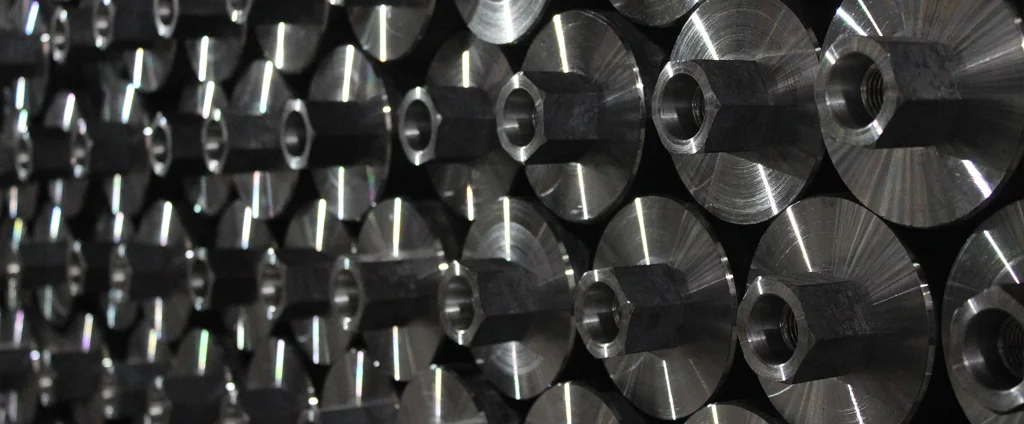SAE/AISI 1049 Carbon Steel (UNS G10490)

SAE/AISI 1049 is a medium carbon steel known for its excellent strength, toughness, and wear resistance. It is widely used in mechanical and structural components that demand moderate to high strength and reliable machinability, including gears, shafts, and fasteners in the automotive, machinery, and construction sectors.
| Chemical Composition | ||
|---|---|---|
| Element | Min | Max |
| Iron | 98.48% | 98.94% |
| Carbon | 0.46% | 0.53% |
| Manganese | 0.60% | 0.90% |
| Phosphorous | —— | 0.04% |
| Sulfur | —— | 0.05% |
The following table provides a list of SAE/AISI 1049 properties in both SI and US customary/Imperial units.
Click on the button to switch between Metric and Imperial units.
| Physical Properties | Metric |
|---|---|
| Density | 7850 kg/m3 |
| Mechanical Properties | Metric |
| Tensile Strength (Ultimate) | 600 - 750 MPa |
| Tensile Strength (Yield) | 330 - 640 MPa |
| Young’s Modulus (E) | 190 - 210 GPa |
| Bulk Modulus (K) | 140 GPa |
| Shear Modulus (G) | 80 GPa |
| Elongation at Break | 15 - 20% |
| Poisson’s Ratio (ν) | 0.27 - 0.30 |
| Brinell Hardness | 180 - 220 |
| Thermal Properties | Metric |
| Thermal Conductivity | 52 W/m·K |
| Specific Heat Capacity (Cp) | 470 J/kg·K |
| Coefficient of Thermal Expansion (αL) | 1.2×10-5 1/°C |
| Electrical Properties | Metric |
| Electrical Conductivity | 4.1×106 S/m |
| Electrical Resistivity | 2.4×10-7 Ω·m |
The values in this table are approximate and can vary depending on various factors such as the specific manufacturing process and heat treatment applied to the alloy.
Advantages & Disadvantages of 1049 Carbon Steel
| Advantages | Disadvantages |
|---|---|
| Good strength | Low corrosion resistance |
| Good machinability | Limited hardness |
| Good weldability | Lower impact resistance |
| Cost-effective |
Applications of 1049 Carbon Steel
SAE/AISI 1049 carbon steel is used in diverse sectors due to its balance of strength, toughness, and cost-efficiency. Common applications include:
- Gears and Shafts: Suitable for manufacturing gears, shafts, and other mechanical components that require good strength and wear resistance.
- Bolts and Fasteners: Often used for producing bolts, screws, studs, and other fasteners. Its strength and weldability make it suitable for securing components in various industries.
- Machinery Components: Utilized in the construction of machinery components such as axles, spindles, crankshafts, and connecting rods. These components require a balance of strength and machinability.
- Structural Parts: Used in structural applications for manufacturing beams, supports, frames, and other load-bearing parts. Its strength properties provide structural stability.
- Automotive Components: Found in automotive applications, including parts such as gears, shafts, axles, and steering components. Its combination of strength and machinability makes it suitable for these demanding uses.
- Agricultural Equipment: Used in the manufacturing of agricultural machinery and equipment, including parts like plow blades, harrow teeth, and components that require strength and durability.
- Construction Equipment: Components such as excavator buckets, blades, and pins may be made from this steel due to its strength and wear resistance.
- Hand Tools: Suitable for producing various hand tools such as wrenches, hammers, chisels, and punches. Its machinability and strength make it ideal for shaping and forming tools.
